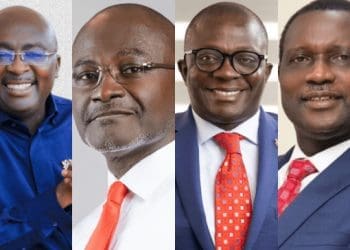Activist and lawyer Oliver Barker-Vormawor has taken a swipe at growing calls for the reinstatement of the suspended Chief Justice of Ghana, Gertrude Araba Esaaba Sackey Torkornoo, describing such demands as misplaced and ironic.
In a sharp social media post, Vormawor argued that the calls for the reinstatement of Gertrude Torkornoo have openly acknowledged that the judiciary continues to be inundated with “over 10,000 frivolous cases” — a situation that, in his view, undermines the very credibility of the justice system.
Vormawor wrote: “The Ghana Bar Association wrote to the UK Bar Council and Commonwealth Lawyers asking them to issue a statement. The statement has been issued. Case closed.
“But forget about that for a second. Araba has filed 10,000 frivolous cases. She has lost all.
“Reinstate her so that she will use the Courts to now litigate her personal grievances? Hasn’t that ship sailed by now, cos of her conduct?
“When Araba is finally cleared, I swear she can even use the Judiciary to declare Bawumia winner of the 2024 elections.”
The activist further suggested that the conversation should shift from personalities to systemic accountability, stressing that without deep reforms, any office-holder would eventually be frustrated by entrenched partisan interests.
Calls for the reinstatement of Torkornoo have resurfaced after two influential global legal bodies — the Bar Council of England and Wales and the Commonwealth Lawyers Association (CLA) — issued a joint statement demanding her immediate reinstatement.
Their intervention has cast Ghana’s judicial independence under an intense spotlight, raising questions about the country’s adherence to constitutional safeguards, due process, and the Commonwealth’s core principles.
The demands from these organisations are direct and uncompromising.
First, they insist that the Chief Justice be restored to office without delay, describing her removal as unconstitutional and injurious to the rule of law.
They also called on the government to guarantee a fair and transparent disciplinary process, should any legitimate charges exist, ensuring her legal team has full access to all proceedings.
Further, they urged the establishment of clear procedural rules for any such processes, including strict timelines for the investigating committee to conclude its work and issue its decision.
In their view, anything less risks deepening a crisis of confidence in Ghana’s judiciary.












